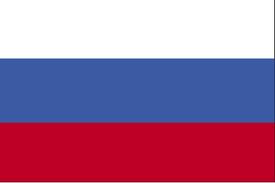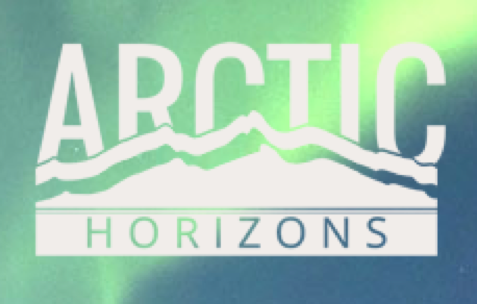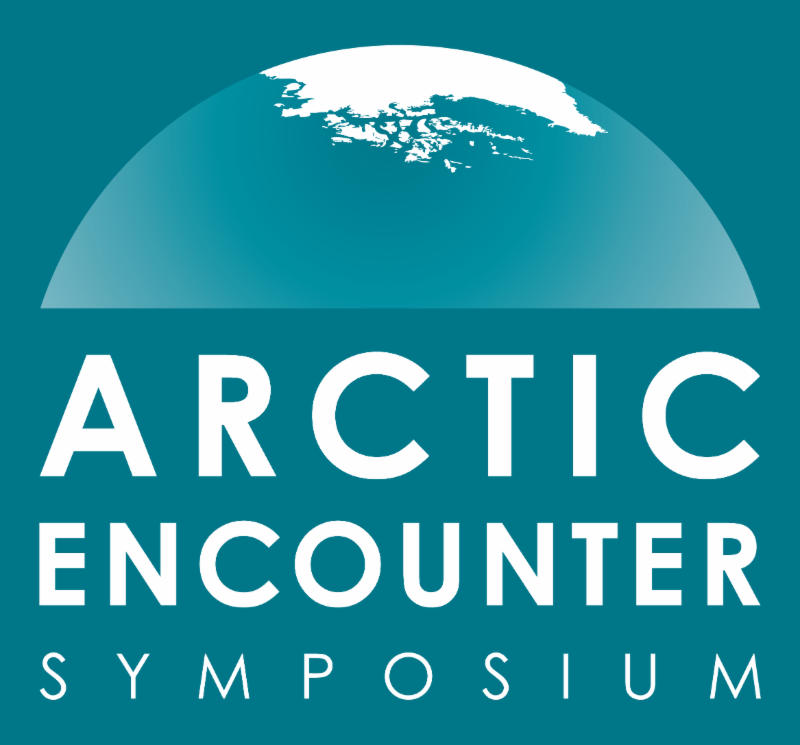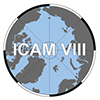|
|
|
|
|
|
|
|
No Arctic-science events are announced for today.
|
Media
APRIL FOOLS! Researchers Find Evidence of Giant, Prehistoric Arctic Bunny. Canadian researchers revealed stunning new evidence yesterday that raises new questions about the evolution of mammals on Earth: fossilized bone fragments that reveal the existence of a giant nine-foot hare that once hopped its way around Ellesmere Island. "We can't be certain about the colour of this large bunny, which we plan to call 'ukaliraaluk,' to pay homage to its Nunavut origins," Pierre Rock of the Canadian Museum Nature in Ottawa told Nunatsiaq News in an exclusive interview inside the museum's Ujarak room. Nunatsiaq Online
Studies Show Paris Targets Crucial to Maintaining Arctic Ice. When Canada and other countries signed on to the Paris climate agreement in 2015 they pledged to hold global warming to under 2 C by the end of this century and work to a more ambitious limit of 1.5 degrees. Now, new research by Canadian and U.S. climate scientists reveals that between those two numbers lies a world of difference for the future of the Arctic and its peoples. The Globe and Mail  The Arctic Joins the List of Transport Improvement Priorities. The Arctic Joins the List of Transport Improvement Priorities. Russia's transport improvement strategy needs to focus on transport accessibility in the Arctic, Siberia and the Far East, a spokesperson for the Russian Security Council's interagency commission said. The commission considered issues involved in developing Russia's transport system at its meeting, the Security Council's press service reported. "While adjusting strategic planning documents related to the development of the transport system, the commission decided to focus on the necessary level of transport accessibility in the Arctic regions, Siberia and the Far East," the press service told Interfax. The Arctic Drone Footage Shows Impact of Climate Change Off East Coast of Newfoundland. Footage shot across the North Atlantic captured a stunning view of accumulating sea ice over Brighton, Newfoundland, but, according to researchers, also serves as stark reminder of the impact of climate change. The close-up drone video was taken by climate hobbyist Andre Beyzaei on March 27, 2018. Global News Who is Using Heavy Fuel Oil in the Arctic? Dr. Bryan Comer of the International Council on Clean Transportation (ICCT) has examined the use of heavy fuel oil in the Arctic by flag state and ship type. In 2015, in the area defined by the IMO as relevant for Polar Code, 2,086 ships operated for 2.6 million hours, traveling 10.3 million nautical miles, with 1.1 million tons of fuel on board, collectively, at any given time. These ships consumed 436 thousand tons of fuel and emitted 193 tons of black carbon. Comer says 889 of the 2,089 ships, or 42 percent, operated on heavy fuel oil; heavy fuel oil represented 57 percent of fuel use by weight, 76 percent of fuel carried by weight and 56 percent of distance-weighted fuel carried. In total, 68 percent of the 193 tons of black carbon these ships emitted resulted from burning heavy fuel oil. Maritime Executive  Arctic Horizons: Final Report. Arctic Horizons: Final Report. Today's Arctic is not the Arctic of twenty years ago, and the quickening pace of Northern change politically, socially, climatically - will continue to transform the Arctic over the years to come. Although the region is in many ways unique, the dynamic of fundamental change there is the same as anyplace else on Earth... As the volume and diversity of human activities in the Arctic continue to increase, so too will the demand for social scientific study. Arctic Horizons is another step forward in the substantial growth and innovation in Arctic social science research which began with the ASSP visioning workshop in 1999. Arctic Horizons
|
|
Future Events
48th International Arctic Workshop 2018, April 5-6, 2018 (Boulder, Colorado USA). Hosted by the Institute of Arctic and Alpine Research (INSTAAR), University of Colorado. The 2018 Arctic Workshop welcomes a community that includes all career stages - from student to distinguished world-class expert. The Arctic Workshop is open to all interested in high latitude environments, including those of the past, present, and future. Talks and posters on all aspects of Arctic science, social science, and engineering are invited, including Arctic and Antarctic climate, anthropology, atmospheric chemistry, engineering and infrastructure, environmental geochemistry, paleoenvironment, sociology, archeology, geomorphology, hydrology, glaciology, soils, ecology, oceanography, Quaternary history and more. If you are studying the Arctic, this is the conference for you.
Polar Day, April 6, 2018 (Davis, CA USA). This Polar Forum is supported by the John Muir Institute at University California Davis. Chair of the US Arctic Research Commission Fran Ulmer will discuss "The Rapidly Changing Arctic: Why Does it Matter?" Dr. Steven C. Amstrup will discuss "Current and Future Challenges Facing Polar Bears." There will be a screening of the documentary "Between Earth and Sky." Following the film there will be a panel Q&A with Fran Ulmer, Eric Post, Steven Amstrup and David Weindorf.
 5th Annual Arctic Encounter Symposium (AES), April 19-20, 2018 (Seattle, WA, USA) 5th Annual Arctic Encounter Symposium (AES), April 19-20, 2018 (Seattle, WA, USA) The Arctic Encounter, the largest annual Arctic policy conference in the U.S., will convene policymakers, industry leaders, scientists, Arctic artists and musical performers, and other stakeholders to debate and discuss emerging Arctic challenges and opportunities including policy, innovation, security, and development. The mission of AES is to raise awareness, engage challenges, and develop solutions for the future of the Arctic region and the people who live there. The 5th annual AES will take place in downtown Seattle at the Bell Harbor International Conference Center on Pier 66.
2018 North by North Festival, April 23-29, 2018 (Anchorage, Alaska USA). The North by North Festival captures the spirit of Alaska and the Arctic - to address our challenges and opportunities with Northern innovation and resilience, to build on a rich history and to ensure a future full of promise. The Festival is for the North, and organized by Northerners, with goals of sustainability, livability and growth. The Festival brings innovators from across Alaska, the nation and other Arctic regions to collaborate and address local and circumpolar challenges. Through knowledge, governance, business, design, film, music, food, literature and art, we celebrate the North.
** New this week ** 2018 Anchorage Arctic Research Day, April 26, 2018 (Anchorage, Alaska USA). This event is held in conjunction with the 2018 North by North Festival. It is organized by the Arctic Research Consortium of the US, the University of Alaska Anchorage, the Anchorage Museum, and the Institute of the North. This gathering will include participants from government, corporate, academic, not-for-profit, and Indigenous groups, and will feature oral panel discussions by leading researchers across the natural and social sciences, health, engineering, humanities, the arts, and governance. The day will also feature both formal and informal activities to encourage networking and robust roundtable discussions to encourage collaborations across the boundaries of discipline, organization, and sector.
Council on Earth Cryology, May 15-16, 2018 (Moscow, Russian Federation). Scientific council on Earth cryology of Russian Academy of Sciences together with Department of Geocryology of Faculty of Geology of Lomonosov Moscow State University, Institute of the Earth Cryosphere, the Tyumen Scientific Senter, Melnikov Permafrost Institute (Yakutsk) of the Siberian Branch of the Russian Academy of Science holds on May 15 - 16, 2018 an enlarged meeting with participation of the Russian and foreign scientists, engineers and experts: "Current problems of geocryology." The meeting of Scientific council on Earth Cryology of RAS has the status of the International meeting. The publication of materials in the collection of reports is planned. Submissions (Submission Form), offers on cooperation, support of a conference and papers (Sample of Paper) to e-mail: cryoconf18@gmail.com
- Addressing the energy field of the future;
- Defense energy systems in the North;
- Natural hazards and aerospace/defense;
- Empowering Alaska's entrepreneurs;
- Navigating the changing Arctic; and,
- Developing local and global energy solutions.
The Effects of Climate Change on the World's Oceans, June 4-8, 2018 (Washington, DC USA). The 4th International Symposium will bring together experts from around the world to better understand climate impacts on ocean ecosystems - and how to respond. The event is hosted by a variety of groups including International Council for the Exploration of the Sea (ICES), N. Pacific Marine Science Organization (PICES), Intergovernmental Oceanographic Commission of UNESCO (IOC), and Food and Agriculture Organization of the United Nations (FAO).
 POLAR 2018, June 15-27, 2018 (Davos, Switzerland). POLAR2018 is a joint event from the Scientific Committee on Antarctic Research (SCAR) and the International Arctic Science Committee (IASC). The SCAR meetings, the ASSW and the Open Science Conference will be hosted by the Swiss Federal Institute for Forest, Snow and Landscape Research WSL under the patronage of the Swiss Committee on Polar and High Altitude Research. The WSL Institute for Snow and Avalanche Research SLF is organizing POLAR2018. POLAR 2018, June 15-27, 2018 (Davos, Switzerland). POLAR2018 is a joint event from the Scientific Committee on Antarctic Research (SCAR) and the International Arctic Science Committee (IASC). The SCAR meetings, the ASSW and the Open Science Conference will be hosted by the Swiss Federal Institute for Forest, Snow and Landscape Research WSL under the patronage of the Swiss Committee on Polar and High Altitude Research. The WSL Institute for Snow and Avalanche Research SLF is organizing POLAR2018.
5th European Conference on Permafrost, June 23-July 1, 2018 (Chamonix-Mont Blanc, France). In the continuation of the International and Regional conferences convened by the International Permafrost Association, the 5th European Conference on Permafrost (EUCOP 2018) will be held in Chamonix-Mont Blanc, France, 23rd June - 1st July 2018. The conference aims at covering all relevant aspects of permafrost research, engineering and outreach on a global and regional level. Conference website: here.
Arctic Observing Summit 2018, June 24-26, 2018 (Davos, Switzerland). The Arctic Observing Summit (AOS) is a high-level biennial summit that provides a platform to address urgent and broadly recognized needs of Arctic observing across all components of the Arctic system. AOS 2018 will be held in Davos, Switzerland ( June 24-26) and will focus on pressing issues in the implementation and support of sustained observations that can be addressed through a business-case lens. To that end, short submissions are requested that address any and all aspects of the overarching theme and sub-themes. Additional information can be found here.
17th International Congress of Circumpolar Health (ICCH17), August 12-15, 2018 (Copenhagen, Denmark). The ICCH congresses are held every third year in different locations in the circumpolar area and represent the largest scientific meetings worldwide on circumpolar health. The ICCH congresses serve as the primary source of information exchange and scholarly communication in issues relating to circumpolar health. More than 750 participants generally register and participate in each Congress, and more than 400 scientific papers or posters are usually presented.
UArctic Congress 2018, September 3-7, 2018 (Oulu and Helsinki, Finland).
The UArctic Congress 2018 will bring together key UArctic meetings and a science conference into one single gathering, including business meetings of the Council of UArctic, Rectors' Forum, Student Forum, and Thematic Networks & UArctic Institutes Leadership Team. The Congress is an integral part of the Finland's Arctic Council chairmanship program, and open to the public. The event will highlight the themes and priorities of the Finnish chairmanship, including the goals of the United Nations' 2030 Agenda for Sustainable Development, and the Paris Agreement under the UN Framework Convention on Climate Change.
The second Arctic Biodiversity Congress is hosted by the Conservation of Arctic Flora and Fauna (CAFF), the biodiversity working group of the Arctic Council, and the Ministry of the Environment, Finland. The second Arctic Biodiversity Congress will build on the success of the first Congress, held in 2014 in Trondheim, Norway, and will bring together scientists, policymakers government officials, Indigenous representatives, Traditional Knowledge holders, industry, non-governmental organizations, and others to promote the conservation and sustainable use of Arctic biodiversity.
|
|

  
4350 N. Fairfax Drive, Suite 510
Arlington, VA 22203, USA
External links in this publication, and on the USARC's World Wide Web site ( www.arctic.gov) do not constitute endorsement by the US Arctic Research Commission of external Web sites or the information, products or services contained therein. For other than authorized activities, the USARC does not exercise any editorial control over the information you may find at these locations. These links are provided consistent with the stated purpose of this newsletter and the USARC Web site.
|
|
|
|
|
|
|
|
|
 The Arctic Joins the List of Transport Improvement Priorities. Russia's transport improvement strategy needs to focus on transport accessibility in the Arctic, Siberia and the Far East, a spokesperson for the Russian Security Council's interagency commission said. The commission considered issues involved in developing Russia's transport system at its meeting, the Security Council's press service reported. "While adjusting strategic planning documents related to the development of the transport system, the commission decided to focus on the necessary level of transport accessibility in the Arctic regions, Siberia and the Far East," the press service told Interfax. The Arctic
The Arctic Joins the List of Transport Improvement Priorities. Russia's transport improvement strategy needs to focus on transport accessibility in the Arctic, Siberia and the Far East, a spokesperson for the Russian Security Council's interagency commission said. The commission considered issues involved in developing Russia's transport system at its meeting, the Security Council's press service reported. "While adjusting strategic planning documents related to the development of the transport system, the commission decided to focus on the necessary level of transport accessibility in the Arctic regions, Siberia and the Far East," the press service told Interfax. The Arctic Arctic Horizons: Final Report. Today's Arctic is not the Arctic of twenty years ago, and the quickening pace of Northern change politically, socially, climatically - will continue to transform the Arctic over the years to come. Although the region is in many ways unique, the dynamic of fundamental change there is the same as anyplace else on Earth... As the volume and diversity of human activities in the Arctic continue to increase, so too will the demand for social scientific study. Arctic Horizons is another step forward in the substantial growth and innovation in Arctic social science research which began with the ASSP visioning workshop in 1999. Arctic Horizons
Arctic Horizons: Final Report. Today's Arctic is not the Arctic of twenty years ago, and the quickening pace of Northern change politically, socially, climatically - will continue to transform the Arctic over the years to come. Although the region is in many ways unique, the dynamic of fundamental change there is the same as anyplace else on Earth... As the volume and diversity of human activities in the Arctic continue to increase, so too will the demand for social scientific study. Arctic Horizons is another step forward in the substantial growth and innovation in Arctic social science research which began with the ASSP visioning workshop in 1999. Arctic Horizons



